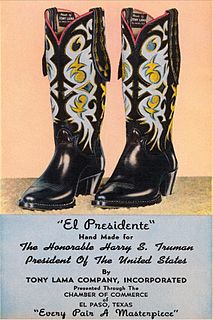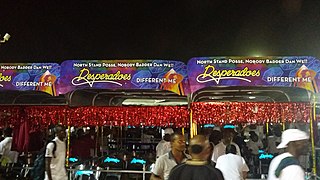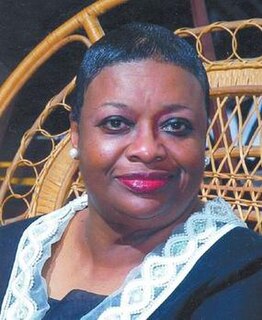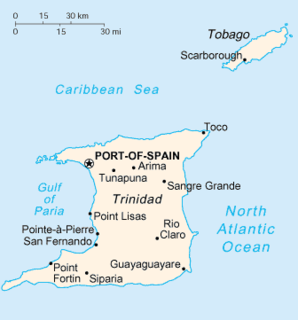
A boot is a type of footwear and not a specific type of shoe. Most boots mainly cover the foot and the ankle, while some also cover some part of the lower calf. Some boots extend up the leg, sometimes as far as the knee or even the hip. Most boots have a heel that is clearly distinguishable from the rest of the sole, even if the two are made of one piece. Traditionally made of leather or rubber, modern boots are made from a variety of materials. Boots are worn both for their functionality – protecting the foot and leg from water, extreme cold, mud or hazards or providing additional ankle support for strenuous activities with added traction requirements, or may have hobnails on their undersides to protect against wear and to get better grip; and for reasons of style and fashion.

The Wellington boot was originally a type of leather boot adapted from Hessian boots. They were worn and popularised by Arthur Wellesley, 1st Duke of Wellington. The "Wellington" boot became a staple of practical foot wear for the British aristocracy and middle class in the early 19th century. The name was subsequently given to waterproof boots made of rubber and they are no longer associated with a particular class. They are now commonly used for a range of agricultural and outdoors pursuits.
The music of Trinidad and Tobago is best known for its calypso music, soca music and steelpan. Calypso's internationally noted performances in the 1950s from native artists such as Lord Melody, Lord Kitchener and Mighty Sparrow. The art form was most popularised at that time by Harry Belafonte. Along with folk songs and African- and Indian-based classical forms, cross-cultural interactions have produced other indigenous forms of music including soca, rapso, parang, chutney, and other derivative and fusion styles. There are also local communities which practice and experiment with international classical and pop music, often fusing them with local steelpan instruments.
The music of Antigua and Barbuda is largely African in character, and has only felt a limited influence from European styles due to the population of Antigua and Barbuda descending mostly from West Africans who were brought to the Caribbean as slaves.

Marabella is a former town in southern Trinidad, between San Fernando and Pointe-à-Pierre. Early 19th century maps highlighted it as Marabella Junction because of the Railway intersection to Williamsville and other central areas. Originally a separate town, it was incorporated into the City of San Fernando in the 1990s.

Diego Martin is a town and is the urban commercial center and capital of the Diego Martin region in Trinidad and Tobago. Its location in the region is just on the south eastern border, west of the capital city of Port of Spain and east of the town of Carenage. Diego Martin town in the Northern Range was once filled with a number of small valleys but is now a densely populated area. It was named after a Spanish explorer Don Diego Martín. The area was settled by French planters and their slaves in the 1780s. It consists of a cluster of communities including Congo Village, Diamond Vale, Green Hill, Patna Village, Petit Valley, Blue Range, La Puerta Avenue, Four Roads, Rich Plain, River Estate, Blue Basin, Water Wheel, West Moorings, Bagatelle and Sierra Leone.
Jit Sukha Samaroo was a Trinidadian composer and steelpan musician.

Elliot "Ellie" Mannette was a Trinidadian musical instrument maker and steel pan musician, also known as "father of the modern steel pan instrument".
Denzil "Belt" Botus is a pannist from Trinidad. He is best known for holding the record for most winning steel band Panorama arrangements and his heavy jazz influence in calypso/soca music. Botus has been active since the 1960s and is considered one of the best steel drummers in the world.
Robert Greenidge is a steelpan player in the United States and a member of popular music singer Jimmy Buffett's Coral Reefer Band and the instrumental group Club Trini.
Raymond Anthony Holman is a musician, composer, pannist and performer from Trinidad.

Sterling Betancourt MBE, FRSA is a Trinidad-born pioneer, inventor, arranger and musician on the steelpan, a major figure in pioneering the Pan in Europe and the UK (1951).

Clive Bradley was a known arranger of steelpan music.
Anthony "Tony" Williams is an inventor, pioneer and musician of the steel pan.

The Desperadoes Steel Orchestra, also called Despers, are a steelband from Laventille in Trinidad, formed in 1945.
Rudolph Charles was a musician and instrument maker of the Steelpan, but most notably, he was a pioneer and leader of the steelband movement in Trinidad and Tobago. Also known as Charlo, The Hammer and Trail, among other names, he led Desperadoes Steel Orchestra to 10 various victories from 1965 to 1985, including six Panoramas, two Classical Music Festivals, one Best Bomb and one Best Playing Steel Orchestra.

The Trinbago Knight Riders is a franchise cricket team of the Caribbean Premier League based in Port of Spain, Trinidad and Tobago. The Red Steel was one of the original six teams created for the tournament's inaugural 2013 season. Their home ground is Queen's Park Oval.

Patricia Alison "Pat" BishopTC was a Trinidadian educator, music director, artist and cultural icon. She was one of the first women to arrange for steelbands and was the recipient of the Trinity Cross, the highest of the National Awards of Trinidad and Tobago.











